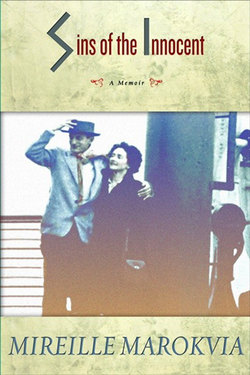Читать книгу Sins of the Innocent - Mireille Marokvia - Страница 14
На сайте Литреса книга снята с продажи.
IX
Оглавление“Yugoslavia,” Abel said. “We could afford a short trip to Yugoslavia. We need fresh air.”
I was ready to go.
We inquired about visas, passports, and were handed forms to fill out.
This was when I discovered that I had acquired German nationality. I don’t know why I had not thought of that before. The next day, I rushed alone and in alarm to the French consul.
“If you did not declare before me, on the day of your marriage, that you wished to abandon your nationality, according to French law, you are still French,” the consul said.
“I want to make a declaration that I wish to keep my French nationality,” I said.
The consul smiled but registered my signed declaration and made out a passport in my married name.
“I must warn you,” he said, “you might find yourself unable to cross the German-French border with your two passports. I cannot put a visa on your German passport that I do not recognize, you understand, and the Germans won’t put a visa on your French passport that they do not recognize.”
I did not tell him, but I was not worried. A few years back, in Fascist Rome, I had been able to convince a high official of my innocence when it had been discovered that I had overstayed my visa by six months. The bored employees I had seen at the French-German border could not be that difficult to deal with.
We left for Yugoslavia in June. At first the lushness and fertility of the countryside surprised us. We had expected the aridity of Greece and southern Italy.
We rushed like tourists through the ancient fortifications of Dubrovnik and the glorious fruit and flower market of Zagreb. We had little time. We swore we would come back.
The day we entered the bazaar of Sarajevo, Abel opened his sketchbook and I knew we would not go any farther. To us, this was the fabulous world of the Orient. Muslim merchants, taciturn and solemn in their colorful garb, sat among treasures: Persian rugs, carved chests, fabulous jewels, and embroidered things we could not identify. Over everything, the mysterious glow from gilded lamps and the scents of incense and Oriental coffee.
One day we stopped to buy cigarettes at a small store close to the bazaar entrance. The tiny place was crowded with plump bags resembling bags of rice. Lolling on top of them was the merchant in modern dark clothes, a fez askew on his head.
Soon Abel and the merchant were conversing in a mixture of German, French, English, and Greek. Abel said he wanted to travel to the Orient. The merchant sat up.
“I can arrange,” he said. “You visit Afghanistan, Turkey, China. Ja, ja. I can arrange. You carry bundle. Sometimes you have camel, horse, donkey. Up mountains you have back. Ja, ja. You strong man.”
A Merchant in the Bazaar of Sarajevo, 1939 (watercolor)
The merchant clapped his hands. Almost instantly, a nimble girl of about twelve was at the door. Long, flowing black pantalets, embroidered crimson vest, white scarf knotted on top of her head that left her dark hair to fall free. The merchant lazily showed three fingers of his left hand. The girl ran, came back a few minutes later carrying three tiny cups of thick, fragrant coffee on a brass tray.
“And my wife?” Abel said.
“Oh, facile,” the merchant said. “Wife go to spy school in Cairo. Four years. Good for woman, spy school!”
“What is in the bundle?” Abel asked. “Gold?”
“Better, better,” the merchant said, smiling.
A not-very-distant day would arrive when to become an opium smuggler and a student spy in Cairo would seem better paths to follow than the road into darkness that suddenly opened.
